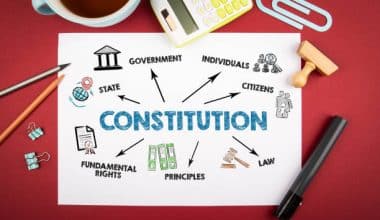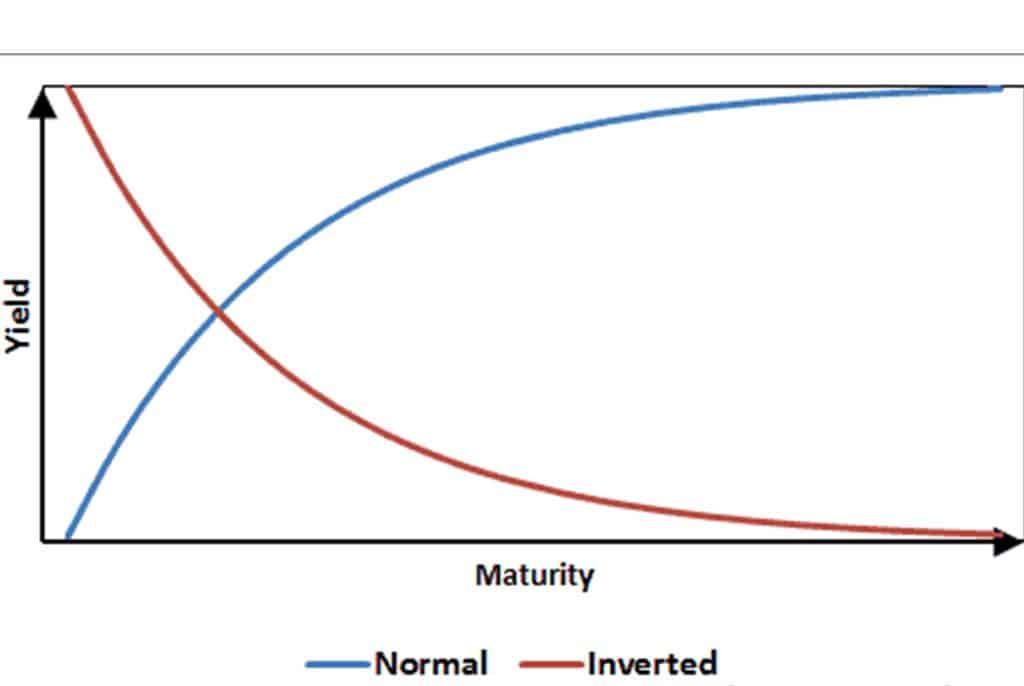Consumers are individuals or groups of people who buy or consume goods and services for personal use only, not for manufacturing or resale. They are the final users in the sales distribution chain.
Definition of Consumer
The consumer is the person who uses a product or service. A consumer is someone who consumes a product or service without the agreement of the buyer who purchased it.
A client is any individual or group of individuals who, in addition to the buyer of the product or services, utilizes the product with his or her agreement. To put it another way, the consumer is the person who utilizes the goods or services.
Consumer Characteristics
When a corporation sells a service or a product, it must first identify and categorize the distinct types of consumers before marketing to them.
- Commercial consumers are those who buy in large quantities yet are unsure about whether or not they need the product. Furthermore, they occasionally connect special needs with their purchase orders.
- Discretionary Spending Consumers: These consumers have particular purchasing habits. They frequently buy a lot of apparel and technology.
- Extroverted Customers: These people like unique businesses and become dedicated customers once they have acquired the brand’s trust.
- Inferior goods consumers: Consumers that buy inferior goods have a low income and acquire stuff at low prices.
What is the Difference Between A Customer And A Consumer?
Consumers are not always the individuals who buy a thing. For example, parents frequently buy toys for their children. In this scenario, the parent is the customer, and the child is the consumer.
Another example is when a dog owner buys dog food or a dog toy; the person is the customer, and the dog is the consumer.
Simply said, the customer is the one who purchases the product, and the consumer is the person who uses it. Because the customer is usually the consumer, the terms are often used interchangeably.
Consumer Examples
Here are several examples of a consumer:
- A person who pays a hairdresser to trim and style their hair.
- A corporation that purchases a printer for internal use. The client is the corporation that purchased the printer, and the consumers are the personnel who use it. The corporation has no plans to resell the printer.
- A parent who purchases new shoes for their child. The parent is the client, and the child is the consumer.
- A person buys a new television for oneself. The individual is both the customer and the consumer.
- A family purchasing a flight for a vacation. The consumers are the entire family.
What Is Consumer Behavior?
Consumer behavior is the study of the factors that influence people’s purchase decisions, such as environmental, psychological, and societal aspects. Marketers can get knowledge of how consumers buy products or services, the mental and/or emotional process underlying such decisions, and what motivates them to choose one product over another by using data. All of this can help marketers create hyper-targeted advertising campaigns aimed to stimulate the interest of their consumer base.
Consumer Behavior Analyst
Consumer behavior analysts are often known as market research analysts or marketing specialists. These specialists employ psychology and marketing ideas to assess the wants and aspirations of clients for the benefit of a company or research study. They are in charge of evaluating the brains of consumers who buy things in order to discover what they buy and other purchasing behaviors.
Market research analysts may be employed by and work for a single organization, or they may work for a consulting firm and be hired out on a contract basis to work with many corporations. Market research analysts typically work full-time, though longer hours may be required as project deadlines near. Some analysts have full-time occupations outside of market research and only analyze on a part-time basis. While most analysts operate in an office setting, largely using computers to perform their research, some interact with the public directly.
Steps to Becoming A Consumer Behaviour Analyst
#1. Get a Bachelor’s Degree
A bachelor’s degree is the minimal education required to become a consumer behavior analyst. Marketing analysis and psychology are common areas of study, but statistics and math are also relevant disciplines. Courses in allied fields such as research methodology, marketing, psychology, advertising, and business might also be advantageous.
Participate in an internship to get the most out of your degree. Students can obtain first-hand experience in consumer behavior analysis by working as research analyst interns for a variety of companies.
#2. Pursue a Graduate Degree
Obtaining a graduate degree can help raise qualifications to improve employment chances, such as professional promotion or moving into a leadership post. Graduate programs may be more likely to offer consumer behavior specializations. Students may be interested in programs such as the Master of Science in Marketing Research or the Master of Business Administration with a relevant specialization.
Professional experience can be earned through entry-level work in relevant industries such as marketing or business. Workers in these professions can learn about the sector as well as important activities such as data collection, measuring client satisfaction, and analyzing marketing trends. This experience is also required to pursue certification.
#4. Get Certified
While not required for employment or promotion in this area, the BLS adds that industry certification, such as the MRA’s Professional Researcher Certification (PRC) certificate, can indicate skill and professionalism in the field to prospective employers. The PRC credential is available at the expert and practitioner levels, with both having eligibility requirements and a rigorous exam on pertinent topics. Pursuing the PRC certificate will also necessitate at least three years of relevant experience.
What is a Consumer Protection Lawyer?
This practitioner, sometimes known as a consumer solicitor, specializes in legally representing individuals who have been harmed as a result of a company’s activities or products. The Consumer Rights Act of 2015 is a law that consolidates and improves consumer protection rules, making them easier to understand for both consumers and companies. It applies to the sale of goods, services, and digital information and sets clear rules on what consumers should anticipate in terms of quality, safety, and pricing.
When a company’s activities defraud, hurt, or otherwise harm a client, consumer solicitors give legal advice and representation. They hold firms accountable for their conduct and protect customers’ rights.
What is Consumer Law?
Consumer law is a subset of law that deals with the legal concerns that emerge from individuals’ purchases and use of goods and services. Its goal is to defend consumers’ interests by ensuring that firms treat them fairly and respect their rights. Consumer law encompasses a wide range of legal issues, including product liability, deceptive advertising, fraud, and unfair commercial practices.
How to Make a Career in Consumer Law
If you want to work in consumer law, there are various steps you can take to get started:
#1. Earn a law degree or equivalent job experience.
To become a consumer lawyer, you must first get a law degree and then pass the Solicitors Qualifying Examination (SQE). Full-time education typically takes five to six years, which includes finishing a law degree, SQE examinations, and two years of qualifying legal work experience. Some colleges require that you pass the Law National Aptitude Test (LNAT) before you can study law.
Complete a law degree or a comparable degree if you want to be a barrister. Then take a conversion course or a Graduate Diploma in Law. After that, you can take the Bar Course Aptitude Test (BCAT), the Bar Practice Course (BPC), and practical work experience, known as pupillage.
#2. Apply for an internship or apprenticeship
Seeking internships or work experience while studying is a key step toward becoming a consumer lawyer. Many law schools also have clinical programs in which students work on real-life cases under the supervision of experienced attorneys. You can also apply for holiday programs, apprenticeships, and work experience positions offered by law companies and barristers’ chambers. Be proactive in your search for opportunities, and contact attorneys or organizations to inquire about internships or work experience.
#3. Networking and relationship-building
Networking is a vital aspect of advancing one’s legal career. Attend industry events, join professional organizations such as the Law Society or Bar Council, and network with other legal professionals. You can also utilize social media to engage with possible employers and colleagues. Maintaining positive relationships with past coworkers and classmates can provide valuable references and advice.
#4. Apply for jobs
To apply for consumer law positions, look for firms or organizations that specialize in consumer law. Check their websites and employment boards for open openings and take note of their application requirements. Prepare a good cover letter and CV that showcase your relevant abilities, education, and experience, personalizing them to the specific post and firm. Include any relevant professional experience, such as internships or volunteer work, as well as any academic achievements. Prepare to give references and writing examples if the company demands them. Be patient and persistent, as the job market might be tough.
#5. Consider beginning with entry-level experience.
While it is possible to find work fast, you can also obtain experience in the legal market in an entry-level role following graduation. You could, for example, work as a law clerk or paralegal for a consumer law company, government agency, or non-profit organization. Volunteering your services to consumer advocacy groups can also provide useful experience and help you grow your network. Consider volunteering with consumer advocacy groups or legal aid organizations to obtain useful expertise and develop contacts in the sector.
#6. Stay current on industry trends and advancements.
Consumer law is a continually changing field. To be successful, keep up with industry trends and advancements. This includes staying current on changes in consumer protection laws, court rulings, and regulatory developments. This can be accomplished by attending industry conferences, reading legal journals, getting in touch with professionals in the field, and enrolling in continuing education courses.
Key Characteristics of Effective Consumer Lawyers
Certain abilities are required to be a good consumer solicitor, including:
Critical thinking and analysis
A competent consumer lawyer has a strong brain and excellent analytical skills. They can analyze complex legal challenges and devise successful legal tactics.
Excellent verbal and written communication skills
Consumer lawyers must have great interpersonal skills in order to create connections with clients, negotiate with opposing counsel, and collaborate successfully with colleagues. Writing and editing are also essential for consumer lawyers in order to establish precise, unambiguous, and enforceable legal contracts and agreements.
Problem-solving
These lawyers’ exceptional problem-solving abilities enable them to devise novel solutions to challenging legal situations. They also have excellent judgment to give clients with the finest legal counsel available while also protecting their clients’ interests at all times.
Time management
Consumer lawyers can successfully manage their time in order to fulfill deadlines and handle many cases at once.
Knowledge of the specialty
These specialists have a deep awareness of consumer law and the legal challenges that occur in consumer matters. When something is unclear, they have the capacity to conduct extensive study and synthesize pertinent facts in order to establish a solid argument and accomplish good outcomes.
Duties Of A Consumer Lawyer
A consumer solicitor’s responsibilities differ based on the type of case they’re working on. The first step is to thoroughly investigate a case. This assists them in gathering facts and constructing a solid legal argument. They then advise clients on their legal rights and choices and create legal papers such as complaints, motions, and briefs to support their clients’ arguments. Consumer solicitors may also represent their clients in court, negotiating with opposing lawyers and participating in other legal actions.
Depending on the outcome of the proceedings, consumer solicitors may negotiate settlements with opposing lawyers to resolve issues outside of court. Consumer lawyers are tenacious in their pursuit of justice for their clients, especially when they face overwhelming opposition from huge corporations. Empathy and a feeling of justice for their clients allow them to comprehend their clients’ viewpoints and create trust by demonstrating that they care.
Who Is Called A Consumer In Economics?
Consumers are those who buy or consume goods and services to meet their desires.
What Are The 4 Types Of Consumers In Economics?
Consumers are classified as primary, secondary, tertiary, or apex.
- Consumer Market: Factors That Affect The Consumer Market In Nigeria
- TRADITIONAL BANKS: Definition, Differences Between Online & Traditional Banking
- RETAIL INDUSTRY: How Does It Work?
- PERSONAL SELLING: Definition, Features & Strategy






